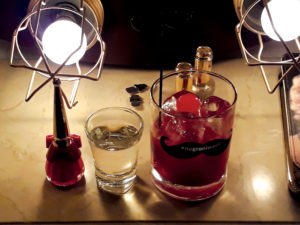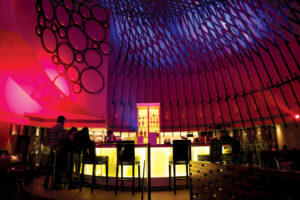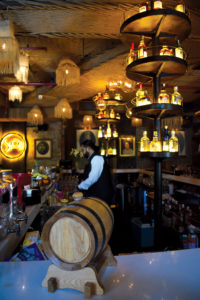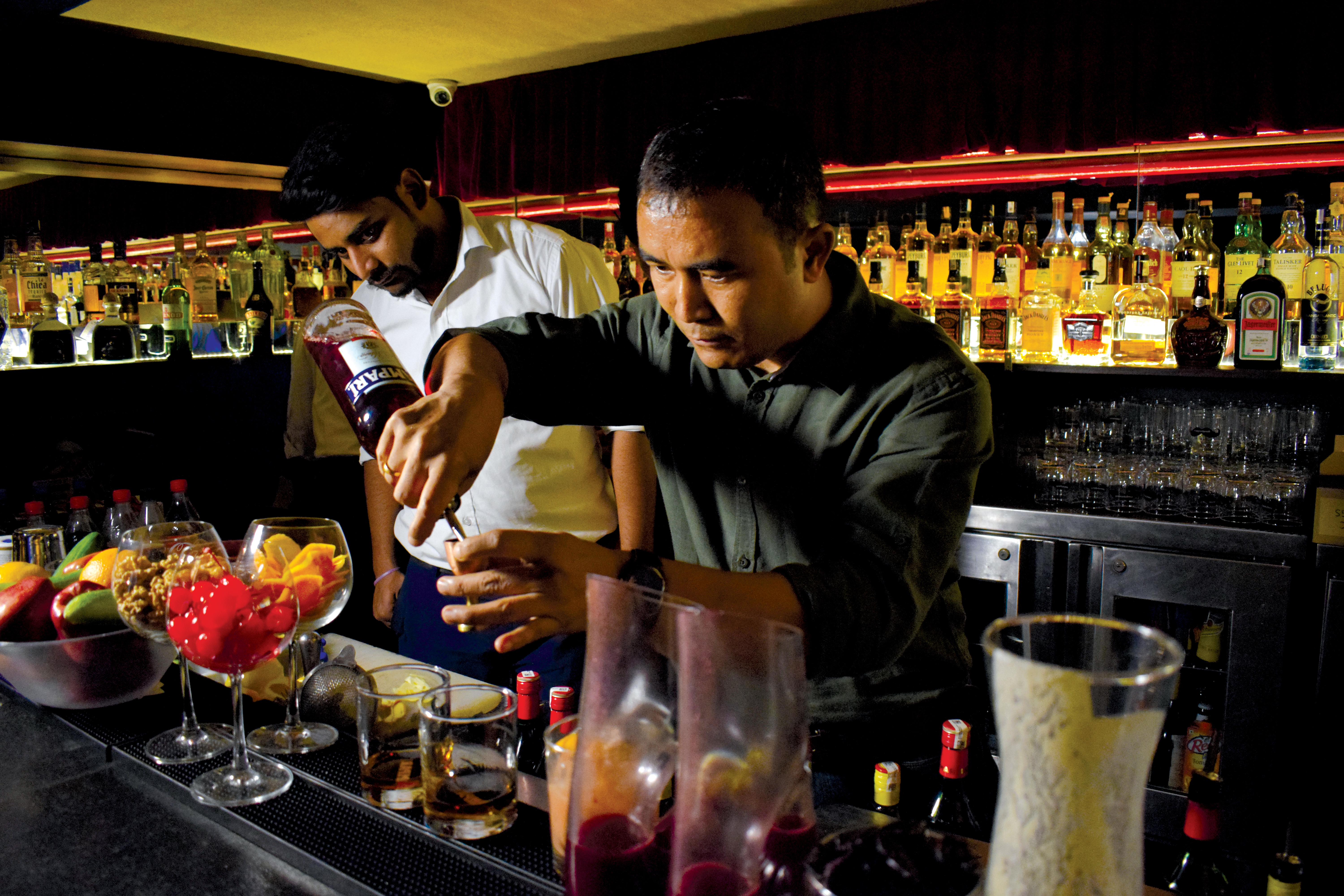The new rule asking bars and restaurants to throw away liquor stock more than eight days old is impractical and will only open the doors to corruption, says the hospitality industry
A new order on the sale of liquor in bars and restaurants has enraged the hospitality industry. It is being seen as nothing but one more restrictive regulation which will lead to the rise of ‘Inspector Raj’ in the Capital. And lead to loss of business.
The Excise Department issued a “First In First Out” policy on August 26, which decrees that all liquor stock in the city’s bars and restaurants older than eight days has to be destroyed from August 31. This has raised the hackles of managers and owners in a business which registered sales of Rs 5,000 crores in financial year 2018-19.

The order, which most deem impractical, would require major changes in inventory management, even change in business models. Also, it won’t be surprising to see more government officials demanding bribes, increasing the chances of corruption that the Aam Aadmi Party was born fighting.
The department’s justification for this major move is that it is a way of curbing adulteration and ensuring that customers get good quality liquor. It is true that customers must be protected from adulterated liquor but the measure is seen as hamhanded and difficult to implement.
Following uproar from hundreds of bars and restaurants, and meetings with officials of the Excise Department, the order has been modified. It will apply to only a selection of liquor and will roll out from October 1.
The earlier order had a deadline of three, five and eight days for different categories of liquor. The new order puts a three-day limit on champagne and sparkling wines, after which drinks will have to be removed or destroyed. The order earlier included beer as well.
The maximum eight-day limit has been set for whiskey and vodka sold in the price range of Rs 1,501 to Rs 4,500 for 750 ml pack size. Other liquor like gin, scotch and tequila have been removed from the list.
If any restaurant or a bar fails to adhere to these rules, The Excise Department holds the right to revoke licences given to serve liquor.
The return of ‘Inspector Raj’ by this route has forced the hospitality industry to tweak the menu to come in line with the new rule, and avoid the scrutiny of the government.

Patriot spoke to some of the key people in these establishments to know about the kind of changes this rule will bring to their business and how they are dealing with it.
Ajit Ajmani, owner of My Bar Square, a lounge in Connaught Place, says, “If there are sealed bottles in the bar then the government shouldn’t have any problem. It will be better to decrease price tags than destroy unsold liquor. The previous rule wasn’t practical. Some restaurants do less sales, some more”. His lounge welcomes about 100-200 customers on a weekday, and 300-400 customers during the weekend.
Ajami says, “Consumption differs bar to bar. Liquor in the segment priced at Rs 1,500 to Rs 4,500 segment is not much in demand in many restaurants. It’s a relief they haven’t included whiskeys like Black Dog or 100 Pipers which don’t come under this segment. Now we have to be worried about the Rs 1,500 segment.”
Because the targeted segment doesn’t have many takers, Ajmani says that now he will have to “decrease the prices of all the liquor available in this segment so that it’s consumed within eight days.”
He says the lounge is planning to reduce prices by 20-25% and stock fewer varieties of alcohol once the rule kicks in. “We will only order liquor which is popular. The ones which are preferred by select customers will not be ordered any more. This means a loss of customers as well.”
Ajmani says customers expect variety when they go to a bar or a restaurant. “If we don’t offer enough options in the said segment for whiskey, the customer will not like that, and will stop coming to our joint.”
At Auro Kitchen & Bar in Hauz Khas, the manager Digvijay agrees, “It’s not practical to expect an expensive bottle of liquor to be sold within eight days. It can take longer than that.”

“When it comes to wine and champagne, we will appoint a person to keep a tab on the new stock. Bottles will be purchased one by one,” he says. The drawback of this procedure is that the ordered bottle might arrive late. In case of expensive wine, he says, “If a bottle is opened and only a glass is sold, it’s not practically possible to sell the remaining part of the bottle within three days.”
He also says that the restaurant has a chart in place for beer, where they keep a tab on the expiration date. If a beer is found expired, the restaurant already has a policy to throw it away.
At another restaurant Coast Cafe in the area, which has a pretty extensive menu when it comes to wine, the manager Varun is also worried about the new order. He chuckles about the three-day rule for sparkling wines. “It cannot be sold in three days,” he says flatly. “We will stock less variety in that case. Pleasing customers will become more difficult.”
He also points out, “If we can’t give a customer the brand of his choice then he/she will go drink somewhere else.”
In Nehru Place, Surinder, the manager of The Flying Saucer Cafe says “now we will have to take lots of precautions before ordering any bottle of liquor. Issuing will be watched closely.”
“We will start a policy to request the customer to purchase the whole bottle. Because it won’t be possible to sell the remaining quantity within three days. That’s not profitable. We might not order some of the brands as it could be dead stock for us.”
If the rules are not followed by bars and restaurants owners, The Excise Department holds the right to revoke licences given to serve liquor.
Weddings under scrutiny
Inspector Raj is also being brought in to regulate weddings. In July, the Delhi government had drafted a policy aimed at controlling number of guests at weddings taking place in farmhouses, motels and Low Density Rural Areas (LDRAs), which are located in Outer Delhi.
To put a cap on the guests, the government has come up with a plan — to calculate the guests based on the parking space available at the venue. This move aims to reduce traffic inflow around these venues.
Not just this, venues should also have mini-sewage treatment plants, and caterers will have to tie up with NGOs to ensure that no food is wasted, and be distributed to the poorer section of the society. This order is on the lines of the Guest Control Order which was adopted by states like Assam and Rajasthan in 1966 and 1978.
“I feel this sort of intrusion in social gatherings might also lead to corruption. Who will follow all these regulations? The caterers or the venue owners may try to bypass these regulations by bribing officials. I won’t be surprised if I see reports of corruption flourishing,” says an official at one of Delhi’s biggest think tanks on condition of anonymity.





